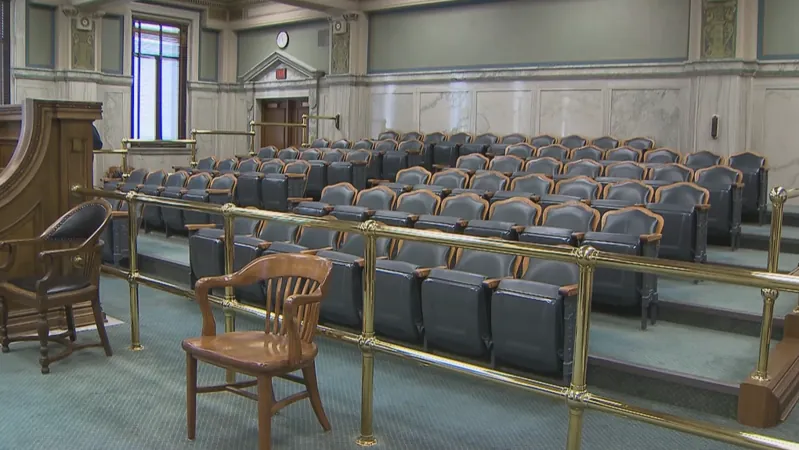
Justice Denied: How Court Delays Are Shattering Lives Across the Nation
2024-12-19
Author: William
Introduction
Across Canada, a crisis looms in the justice system as relentless court delays continue to deny many individuals their right to a timely trial. The tragic case of a Saskatoon family underscores the urgent need for reform.
A Tragic Case
In September 2021, nine-year-old Baeleigh Maurice lost her life when a truck struck her at a crosswalk. The driver, charged with impaired driving causing death, faced a prolonged legal process that culminated in a judge staying the proceedings due to significant delays. "This is going to be looked back upon as a terrible event in our justice system," lamented family friend Sarah Smokeday, highlighting the emotional toll these delays have taken on the grieving family.
The Legal Perspective
Gerard Kennedy, an associate professor of law at the University of Alberta, stresses that these delays represent an "enormous problem" that plagues both civil and criminal justice processes. Under the Canadian Charter of Rights and Freedoms, the accused has the right to a trial within a reasonable time—18 months for provincial court and 30 months for higher courts. However, civil cases lack specific timelines, leading to protracted waits of often years, discouraging many from seeking justice.
Consequences of Delays
If the Crown cannot demonstrate “exceptional circumstances” for the delays, judges are left with no choice but to stay the proceedings. This legal stipulation, while aimed at keeping the system efficient, has left victims and their families feeling hopeless and abandoned.
Impact of COVID-19
The situation has been worsened by the COVID-19 pandemic, which intensified existing backlogs. Donna Kellway, president of the Ontario Crown Attorneys’ Association, warns that while attempts are being made to tackle these delays, new cases are consistently added to the roster. "You have a lot of prosecutors who are dealing with highly emotional situations... and it’s just an additional stressor," she explained.
Factors Contributing to Delays
Experts cite several contributing factors to the ongoing delays in the legal system. Palma Paciocco, professor at Osgoode Hall Law School, attributes it largely to issues of supply and demand. A shortage of judicial and court staff, limited courtroom space, and increasingly complex legal processes are key culprits.
Possible Solutions
Paciocco advocates for immediate action to address staffing shortages as a potential starting point. The government has made some strides; according to a spokesperson for Justice Minister Arif Virani, judicial vacancies have decreased significantly, with over 96% of positions filled following the addition of 116 new judicial roles since 2017 aimed at improving access to justice.
A Comprehensive Approach
Yet, vacancies are merely one facet of a multifaceted issue. A more comprehensive solution could involve addressing the root causes fueling a significant portion of the criminal caseload, including social issues such as mental health and addiction. By better managing these cases outside traditional criminal justice channels, the system might alleviate some of its pressing burdens.
Technological Advancements
Moreover, technological advancements offer a promising avenue for streamlining processes and improving overall efficiency. As the conversation continues about the struggles within the system, one thing is clear: the need for reform is urgent. Until significant changes are enacted, countless individuals will find justice perpetually out of reach, raising the question: how many more lives must be impacted before action is taken?









 Brasil (PT)
Brasil (PT)
 Canada (EN)
Canada (EN)
 Chile (ES)
Chile (ES)
 España (ES)
España (ES)
 France (FR)
France (FR)
 Hong Kong (EN)
Hong Kong (EN)
 Italia (IT)
Italia (IT)
 日本 (JA)
日本 (JA)
 Magyarország (HU)
Magyarország (HU)
 Norge (NO)
Norge (NO)
 Polska (PL)
Polska (PL)
 Schweiz (DE)
Schweiz (DE)
 Singapore (EN)
Singapore (EN)
 Sverige (SV)
Sverige (SV)
 Suomi (FI)
Suomi (FI)
 Türkiye (TR)
Türkiye (TR)